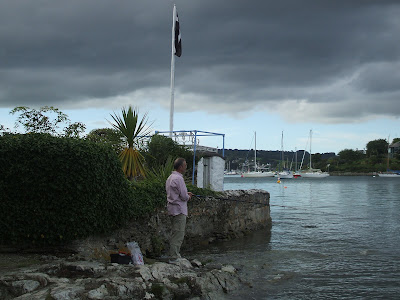Is he right and if so what are the consequences ? It always puzzles me that overpopulation is such a contentious issue and one that many would rather not even discuss. Surely nobody in their right minds would think it sensible to put double the recommended number of passengers in a boat or on an aircraft. Yet when the vehicle is Planet Earth it seems people often go into denial about it.
So whats been happening to the population of the world. To start with, since started you reading this post the world population has already increased by about 120 ! In fact although the population has been growing continuously since the end of the Black Death in 1400, most of the growth has been in the last 50 years.The main reasons for this are advances in medical science and intensive agriculture.
 |
| Historic population growth |
World population is currently estimated at around 7 billion. It is forecast to reach between 8 and 10.5 billion between the year 2040-2050 according to the United Nations. Most estimates for the carrying capacity of the Earth are between 4 billion and 16 billion. So depending on which estimate is used, human overpopulation may or may not have already occurred.
 |
| Forecast growth by continent |
So what can we do to address overpopulation ?
Here are some of the general measures that have wide support :
For developing countries
- Encourage economic development
- Encourage gender equality
- Fund reproductive healthcare
For the UK
- Improve opportunities and education for young women
- Improve sex education
- Improve the quality of family planning advice
Of course it is possible - and could be necessary, to adopt more radical carrot and stick type measures, financial and otherwise to control population growth. Personally I hope that global civilisation will recognise and respond to the challenge of controlling its growth without the need for extreme measures. Some countries, such as Bangladesh, the Congo and Brazil have already shown what can be achieved in this respect.
Our vision is of a global population size providing agood standard of living for all, a healthy environment and environmental sustainability. - Population Matters
Wikipedia - overpopulation
BBC - Population 7 billion - UN Sets out the challenges
World Population Awareness
What can I do ?
Population Matters
An alternative view !
Debunk the population myth






